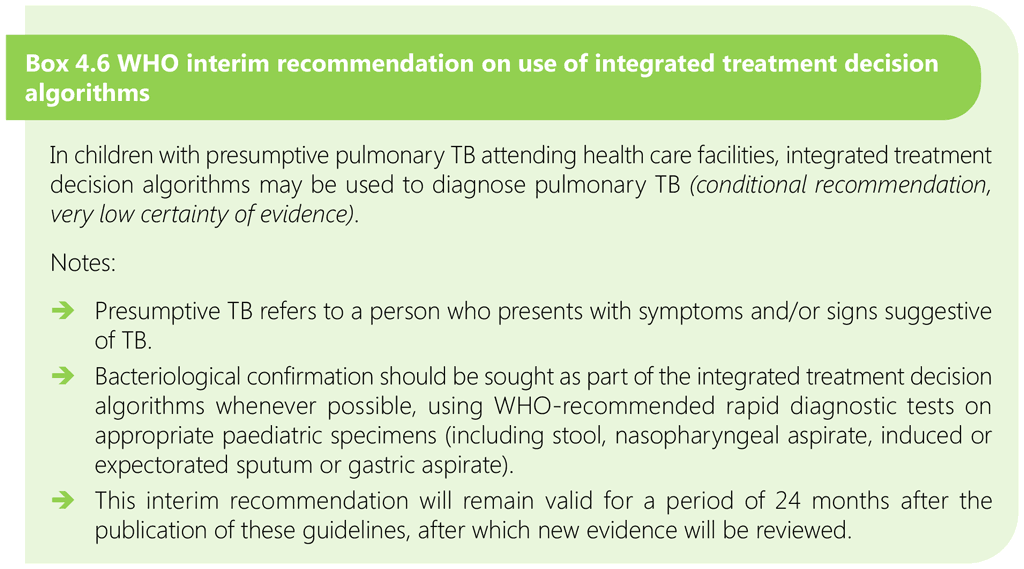Book traversal links for 4.3.9. Integrated treatment decision algorithms for pulmonary TB in children
In children with presumptive PTB attending health care facilities, integrated treatment decision algorithms may be used to diagnose PTB. This is an interim conditional recommendation valid until 2024, after which new evidence will be reviewed (see Box 4.6).
New integrated treatment decision algorithms for specific populations and settings have been developed and internally validated, and are described in this section. The algorithms cover the diagnosis of PTB in children aged under 10 years, including those with intrathoracic lymphadenopathy. The algorithms are not suitable for the diagnosis of EPTB. The main motivation to develop evidence-based treatment decision algorithms was to decrease the large case detection gap and to improve treatment access for children in high TB incidence settings with limited resources, where TB diagnoses are frequently missed.
NTPs and other health programmes are encouraged to use the evidence-based algorithms presented in Figures 4.4 and 4.5 rather than alternative algorithms that have not been evaluated.

New treatment decision algorithms for use in settings with and without CXR were developed based on diagnostic and treatment outcome data in children aged under 10 years presenting for evaluation of pulmonary TB in high TB burden settings. A brief description of the methodology is included in Annex 5. The algorithms are shown in Figures 4.4 and 4.5 and are included in Annex 5 as printable job aids.
The algorithms and guidance on their use are included as printable job aids in Annex 5, which also includes information on the methodology for the development and internal validation.
 Feedback
Feedback